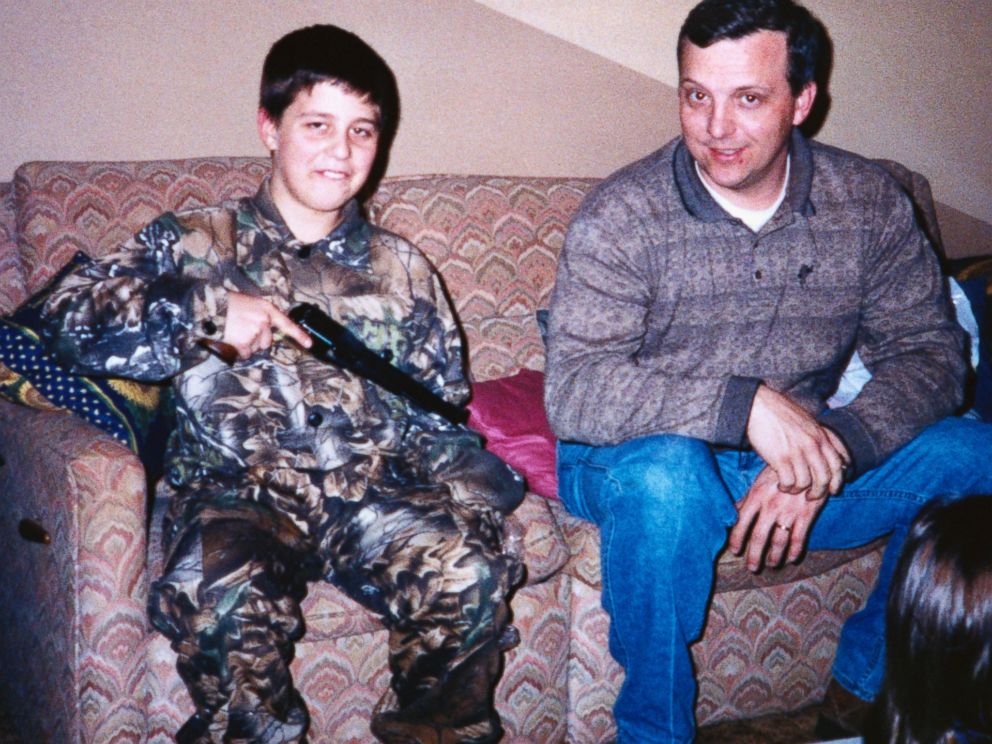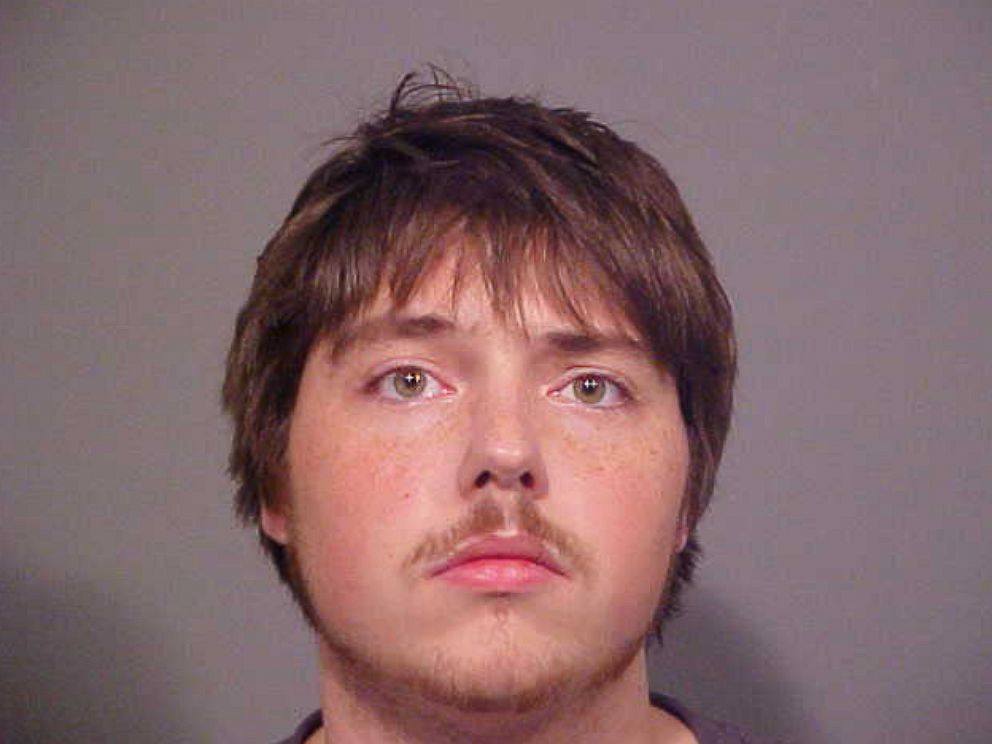
[...]
If you go down the list of mass shootings at U.S. schools, most of the killers turned the guns on themselves after killing classmates and teachers. Several others were killed by police, and a few were taken into custody alive.
But only two are now out of prison, one of whom was arrested with a gun after his release, while the other has since applied for a concealed carry permit.
Not only that, but because Mitchell Johnson and Andrew Golden were minors at the time of the 1998 shooting – 13 and 11, respectively – when they killed five people in what was then the second-deadliest U.S. school shooting, Arkansas state law mandated that they be released on their 21st birthdays, with their records sealed.
Little has been reported about the lives of Golden and Johnson since they were released in the mid-2000s, but they seem to have one thing in common: neither apparently swore off guns after their time in juvenile detention.
THE DAY TWO BOYS BECAME MASS SHOOTERS

Debbie Spencer was a science teacher at Westside Middle School in Jonesboro, Arkansas, in 1998 and taught both Golden and Johnson. She said Johnson "was one of the most polite students I've ever had. Always 'Yes, ma'am, no ma'am,'" she told ABC.
On the other hand, she said, Golden was "sneaky."
"He would do enough to get by. I remember the conversation we had the day before [the shooting]. I was going over to see if they wanted to know what their grades were so far," Spencer said, remembering that Golden had just barely gotten a B.
"You just got by by the skin of your teeth, didn't you?" she recalled saying to him.
"And he said, 'Yup, I always do,'" she said.
"It gives me chills because he knew what he was going to do at this point," she said.
The two were reportedly planning a shooting and getaway, with news reports at the time detailing how Johnson took his parents' car and the boys broke into Golden's grandparents' home where his grandfather kept his guns unlocked. One of the pair then pulled the fire alarm at lunch and opened fire when people started to flee.
"They were hiding in bushes and shooting at us," Spencer said. "We didn't know what was going on. It was an ambush. It was chaos.
"I didn't even know it was that close to me until I was giving the police my statement and I saw, 'Oh look, there's a hole in my purse,'" she said.
Jonesboro was tied for the second-deadliest school shooting in U.S. history at the time, according to an ABC News analysis of FBI records.
Part of the reason it is not as well remembered today stems from a matter of timing, one expert says. Golden and Johnson didn't know it when they pulled their respective triggers, but little over a year later, a pair of teenage boys was going to open fire at their Colorado school in a horrific, deadly event that unfolded on live TV.
Journalist Dave Cullen spent nearly 10 years writing a book about that shooting at Columbine High School, and said the Jonesboro shooting and others contributed to Columbine's resonance.
[...]
THE JUSTICE OF JUVENILES
[...]
Back on March 24, 1998, the pair got guns from Golden's grandfather's house, went to school, pulled the fire alarm after lunch and stood outside the door where they knew students would be fleeing. They opened fire, killing four students and a teacher, and injuring 10 others.
Less than 10 years later, both men were free.
The decision to charge the pair as juveniles was not really a decision at all, but the only option: At the time, Arkansas did not allow juveniles to be tried as adults. That law was changed a year after this case, the Arkansas Bureau of Legislative Research said.
[...]
GUN POSSESSION AND FREEDOM

[...]
Before the law changed, however, Arkansas State Police spokesman Bill Sadler had confirmed to The Arkansas Times, based on the fingerprint needed to apply, that Golden had applied for the conceal carry permit in 2008 using the name Drew Douglas Grant. When ABC News asked last week, Sadler declined to comment because of the new law, but he did explain that sealed records show up in law enforcement background checks though not civilian ones like employer background checks.
According to The Arkansas Times' account, when Drew Douglas Grant applied for a concealed handgun carry license, he listed an address in Arkansas, about 70 miles northwest of Jonesboro. The paper reported that his application was denied because at least one answer – his address history – was proved false after not listing the juvenile detention facility or subsequent federal detention facility where he had lived for several years.
Even though he could only speak in hypotheticals, given the legal restrictions, Sadler said he was not surprised that Golden, by any name, would be rejected.
"When you commit a crime such as the one that was committed at Westside Middle School, and even if you change your name from what your name was at the time of the crime, you can't escape what the clerks knew," Sadler said of the clerks tasked with approving or denying conceal carry permits.
"Anybody who's changed their name, you can't change your fingerprints," he said.
[...]
As for Johnson, he obtained a firearm at some point after his release. After a traffic stop in Arkansas in 2007, he was arrested for possessing a firearm in the presence of a controlled substance. The lawyer who represented him in that case, Jack Schisler, told ABC News that in more than 20 years of practicing law, he has never seen that charge used. When asked why that particular charge was used, Schisler said: "Because he's Mitchell Johnson, Jonesboro school shooter. That's my opinion."
"They were looking at the fact that because he was a juvenile when he got involved in the Jonesboro school shooting and, essentially, got out when he was 21 years old, that didn't sit well with a lot of people. And I think they thought this would be probably the most powerful charge," Schisler said.
While out on bond for that case, Johnson was arrested again in 2008. The Associated Press reported that Johnson admitted to taking a debit card left by a customer at the Arkansas gas station where Johnson was working. Johnson proceeded to use the card at the gas station and at a fast-food restaurant, and had marijuana on his person at the time of his arrest.
Johnson was sentenced to 12 years after being convicted in that 2008 incident and was to be eligible for parole in 2011, but then faced four more years for the earlier drug and weapons conviction from the traffic stop, the AP reported. Schisler confirmed the account. Court records show he was released in July 2015 into the custody of the U.S. Probation Office for the Southern District of Texas and placed in a drug rehabilitation program. The office did not respond to ABC News' multiple requests for comment.
 HIDDEN IN PLAIN SIGHT
HIDDEN IN PLAIN SIGHT
[...]
Science teacher Spencer said there had been speculation in Jonesboro that Golden started attending a local university after his release in May 2007. The registrar for the University of Arkansas Community College at Batesville, which is about 60 miles west of Westside, confirmed to ABC News that an individual named Drew D. Grant attended the school from August 2007 until December 2009.
[...]
Read the last 2 part of the article here:
http://abcnews.go.com/US/living-us-m...ry?id=36986507
Basically they're running free with their information protected

How could 11-13 years old kids do something so horrible, and then still want to get their hands on a gun after being released?

So scary

Many people could've walked pass these murderers without knowing
